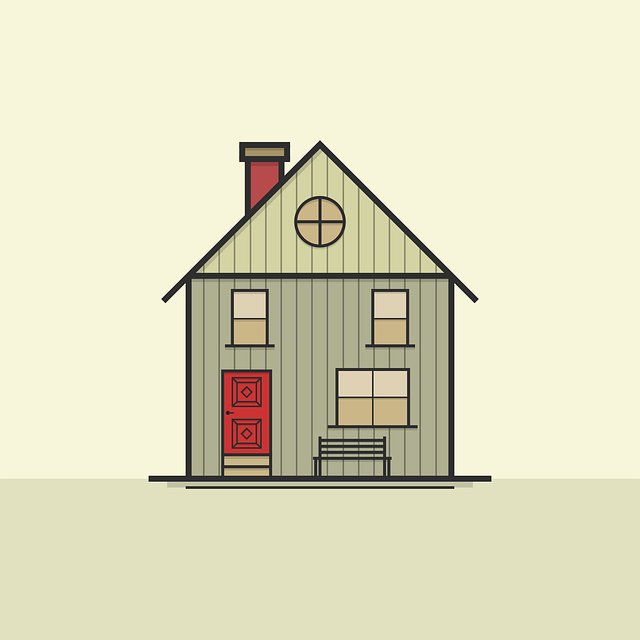A comprehensive home inspection by a certified professional is crucial for identifying potential issues with your property, from structural integrity to mechanical systems. This process ensures that all aspects of the home, including electrical safety, plumbing functionality, heating and cooling efficiency, insulation, ventilation, and water penetration defenses, are assessed thoroughly. Regular maintenance and proactive repair strategies are essential for preserving a home's value, ensuring its longevity, and preventing minor issues from escalating. A strategic maintenance plan, which includes seasonal checks and servicing, can significantly extend the lifespan of critical systems and reduce the risk of future costly repairs. By keeping detailed records of all maintenance activities, homeowners not only aid in making informed repair decisions but also create a transparent document that adds to the property's appeal for potential buyers or assists with insurance claims. In summary, engaging in consistent home repair and maintenance practices is key to safeguarding your home's safety, performance, and endurance, enhancing its resale value, and ensuring it remains a comfortable and efficient living space over time.
When considering the integrity and value of your home, professional home inspection and consulting stand as pivotal steps in safeguarding your investment. This comprehensive guide delves into the nuances of home repair and maintenance, illuminating their critical roles in long-term home health. From understanding the intricacies of a professional home inspector’s role to navigating the complexities of local building codes, each section is crafted to equip homeowners with indispensable knowledge. We explore key areas of focus during inspections, common issues in home systems, and the intersection of repair work with energy efficiency. Homeowners will learn to interpret inspection reports, prepare their homes for scrutiny, and schedule these vital assessments strategically, taking into account seasonal changes that can affect structure and systems. This article also provides practical advice on budgeting for inspections, selecting a qualified inspector, differentiating between inspections and appraisals, and leveraging advanced technology in the inspection process. With an emphasis on hands-on maintenance and the benefits of regular professional evaluations, this article culminates with real-world examples that highlight the importance of home repair and maintenance for maintaining a safe and valuable living space.
- Understanding the Role of a Professional Home Inspector
- The Importance of Regular Home Maintenance for Long-Term Value
- Key Areas of Focus During a Comprehensive Home Inspection
- Identifying Common Issues in Home Systems: What to Look For
Understanding the Role of a Professional Home Inspector

When purchasing or maintaining a property, enlisting the expertise of a professional home inspector is a prudent step to ensure the safety and integrity of your investment. Home inspectors are trained to evaluate the condition of a home’s structure, systems, and components – from the foundation to the roof. Their role is to identify any existing or potential issues that may affect the property’s functionality or value. This includes assessing electrical systems, plumbing, heating and cooling systems, insulation, ventilation, water penetration, and structural composition, among other critical elements.
A thorough home inspection by a certified inspector provides homeowners and buyers with a comprehensive understanding of their property’s current state. It highlights areas that require immediate attention or repairs and offers insights into the long-term maintenance needs. This due diligence not only helps in making informed decisions about home repair and maintenance but also empowers property owners to plan for future expenses and ensure their home remains a safe and comfortable living space. By identifying potential issues early on, homeowners can avoid costly repairs down the line and maintain the value of their property.
The Importance of Regular Home Maintenance for Long-Term Value

Engaging in consistent home repair and maintenance is a prudent investment strategy for any property owner seeking to preserve or enhance their home’s long-term value. Regular upkeep not only extends the lifespan of systems and structures but also prevents minor issues from evolving into costly repairs. By addressing components like HVAC systems, plumbing, electrical wiring, and roofing proactively, homeowners can ensure that their residence remains functional, comfortable, and efficient. This diligence not only safeguards the structural integrity of the home but also creates a safer living environment for its occupants. Moreover, well-maintained properties typically appraise higher due to their optimal condition, which is attractive to potential buyers should the owner decide to sell. Consequently, home repair and maintenance are critical practices for those looking to protect their property’s value over time.
A strategic approach to home repair and maintenance involves creating a schedule tailored to the specific needs of the house. Seasonal checks for insulation, sealant repairs around doors and windows, regular cleaning of gutters and downspouts, and servicing HVAC systems are routine tasks that contribute significantly to the longevity and value of the property. Additionally, keeping detailed records of all maintenance activities can aid in tracking the home’s performance and inform future repair decisions. This documentation also serves as a valuable resource for prospective buyers or for insurance claims, providing transparency and peace of mind. By prioritizing ongoing care and attention, homeowners invest in their property’s resilience, functionality, and marketability, ensuring that it remains a valuable asset for years to come.
Key Areas of Focus During a Comprehensive Home Inspection

When undergoing a comprehensive home inspection, several key areas of focus are critical to ensure the safety, efficiency, and longevity of the property. A seasoned inspector will meticulously assess the home’s structure, including the foundation, framing, and exterior components such as siding and trim. They will look for signs of wear, damage, or potential issues that could compromise the integrity of these elements, which can impact the overall stability of the home. Attention is also given to the roofing system, where inspectors check for leaks, proper ventilation, and adequate insulation in the attic space, all of which are integral to maintaining a comfortable living environment and reducing energy costs as part of home repair and maintenance practices.
Moving indoors, the inspection extends to the home’s mechanical systems. This encompasses a thorough evaluation of the electrical system for safety, code compliance, and proper operation. Safety concerns include checking for overloaded circuits, exposed wiring, and the presence of ground-fault interrupters (GFIs) in appropriate locations. The plumbing system is another focal point, where inspectors assess water supply lines, drainage systems, fixtures, faucets, and water heaters to ensure they are functioning correctly and without leaks, which can lead to costly repairs or water damage. Heating and cooling systems are also scrutinized to guarantee efficient operation, proper ventilation, and effective airflow distribution—all of which contribute to the home’s comfort and energy efficiency, key aspects of ongoing home repair and maintenance.
Identifying Common Issues in Home Systems: What to Look For

When purchasing or maintaining a home, it’s imperative to have a keen eye for potential issues within its systems to ensure safety and longevity. Home repair and maintenance are integral components of responsible homeownership, often requiring a thorough understanding of common systemic problems. During a comprehensive inspection, various critical elements should be examined closely. For instance, the electrical system must be assessed for outdated wiring, which could pose a significant fire hazard, or insufficient grounding that might lead to appliance damage or electric shocks. Plumbing is another area where issues can range from minor leaks to more serious concerns like corroded pipes or inadequate water pressure that could lead to mold growth or water damage over time. Heating and cooling systems are equally vital; they should be checked for proper functionality, energy efficiency, and signs of wear that might necessitate repair or replacement. The roof, an essential barrier against the elements, should be inspected for leaks, missing shingles, or other structural weaknesses that could compromise its integrity. Lastly, inspecting the home’s foundation and structure is crucial to identify any signs of settling, cracking, or other damages that might affect the safety and stability of the entire dwelling. Homeowners should be aware of these common issues and understand the importance of timely repairs and regular maintenance to maintain a safe and comfortable living environment. Engaging with professionals for home repair and maintenance can provide peace of mind by ensuring that all systems operate correctly, thereby reducing the risk of unexpected failures and costly emergency repairs.
In conclusion, engaging a professional home inspector is an indispensable step for both current and prospective homeowners. These experts offer a critical eye, ensuring home systems function optimally and providing guidance on the longevity of your property. Regular maintenance, as discussed, is key to preserving a home’s value over time. By focusing on the essential areas during inspections and staying vigilant about potential issues, homeowners can prevent minor problems from escalating into costly repairs. Home Repair and Maintenance are not just reactive tasks but proactive strategies that safeguard one of life’s most significant investments—your home. Thus, integrating these practices into your routine upkeep is a wise investment in the integrity and enduring value of your living space.



